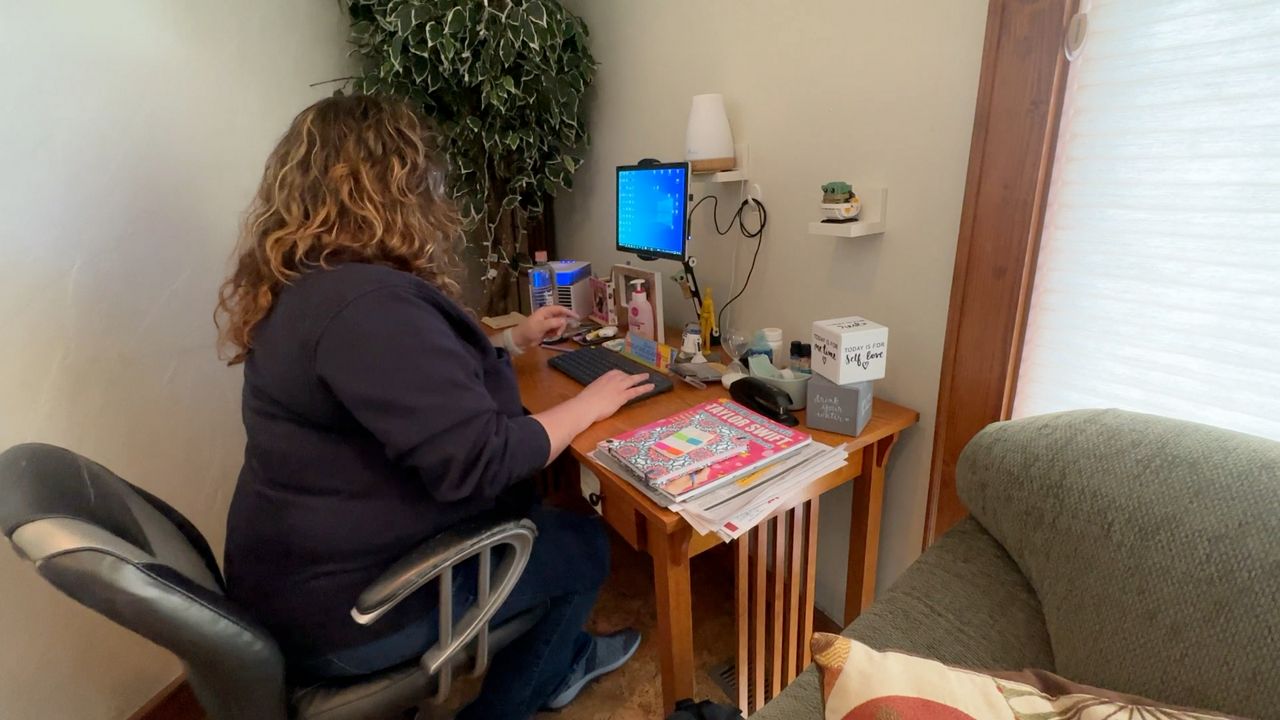ZEBULON, N.C. — Some North Carolina agencies are forming peer support programs and expanding mental health resources for first responders to help them navigate the traumatic things they see every day.
The Substance Abuse and Mental Health Services Administration says 30% of first responders develop behavioral health conditions, like depression or PTSD, compared to 20% of the general population.
Charlotte-Mecklenberg, Raleigh and Greensboro are some of the larger agencies that already have peer support programs. Now, smaller agencies like the Zebulon Police Department are getting on board.
The Zebulon Police Department is first identifying who wants to be a program representative, and then they’ll attend formal training. The goal is to have staff members across several of the smaller agencies in East Wake County serving as a go-to person when a first responder needs to discuss a call or situation they responded to. One volunteer leading this effort, and the Zebulon police chief, say this could be lifesaving.
“When I was starting in policing in the mid-90s, there was an attitude of, ‘Suck it up, buttercup,’” Zebulon Police Chief Jacqui Boykin said. “You deal with something, you just push it down and move on. You never talked about it. You would never shed a tear and certainly wouldn’t need to go talk to somebody about it. That was a sign of weakness.”
Mental health is becoming less of a taboo topic and more of a necessary conversation, especially among first responders.
“The average person will experience two critical incidents in their lifetime. And there’s research that shows police officers will deal with 188. So, nearly 200 critical incidents,” Boykin said.
Boykin says people need a variety of tools to cope with the stressors these jobs bring.
“Because everybody deals with stress differently, everybody deals with pain and heartache differently. The more resources we can offer them, the better,” Boykin said.
Boykin says she was all in when she was approached by Tammy Richards, a Zebulon Police Department volunteer, about creating a peer support program.
“There’s a gym here at the Zebulon Police Department for them to take care of their physical health. And so, we need, we need to talk about taking care of their mental health as well,” Richards said.
Richards has friends and family who are first responders, so she knows the toll their day-to-day can take on them.
“The weight of the badge is really heavy. And if they can put on the uniform again and do it, then we certainly need to have things to be able to help them to deal with the things that they see,” Richards said.“The weight of the badge is really heavy. And if they can put on the uniform again and do it, then we certainly need to have things to be able to help them to deal with the things that they see,” Richards said.
The goal is to train staff across several East Wake County agencies on how to offer mental health support to their peers.
“An officer being able to call an officer, sergeant being able to call a sergeant, talking about problems or issues or things that are on their mind and their heart,” Richards said.
“The idea of being able to go to a peer in a neighboring agency and have somebody to talk to that’s not right here involved with everything that we have going on. I think it’s ideal,” Boykin said.
The idea is about connecting with other people who get what you’re going through, while creating a culture that encourages you to talk about the tough things you face every day.
“My primary goal with this whole program is to create an environment where it’s OK not to be OK,” Richards said. “There just wasn’t that holistic view of employee wellness. We’ve recognized now, over decades and with research, that the cumulative effects of just the day-to-day things with this job can be overwhelming. We’re doing a disservice to our employees to encourage them to push it down.”
The Zebulon Police Department is in the beginning stages of creating this East Wake Peer Support Program. Richards has already received the training, and there’s one officer going through that now who will serve as their first in-house peer support representative. They hope to have things officially up and running in about a year.
The Zebulon Police Department is also reaching out to agencies in Knightdale, Wendell and Rolesville to be a part of this program. But the initiative is open to any agency that wants to join, including fire departments and EMS, no matter their location.








